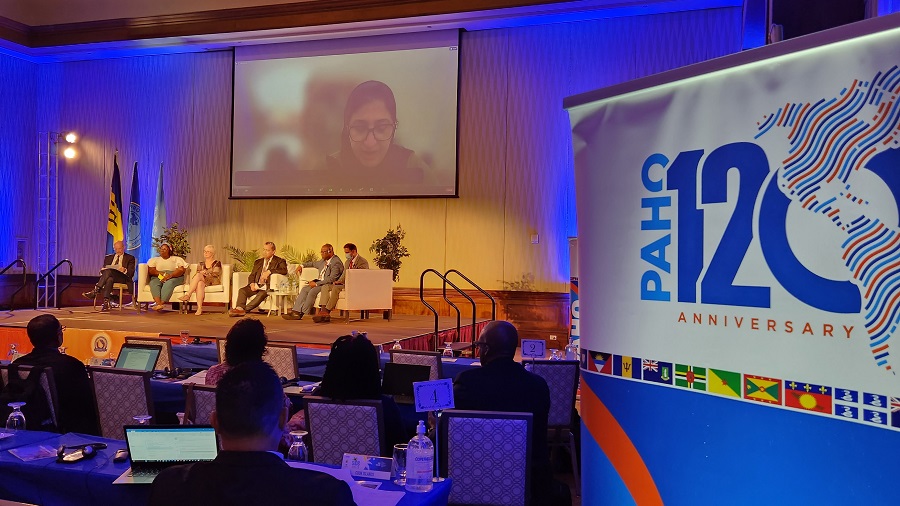
6 April 2023 – A high-level technical meeting and ministerial conference on noncommunicable diseases (NCDs) and mental health in small island developing states (SIDS) was co-hosted by WHO and the Government of Barbados, on 17–19 January 2023. The meeting brought together experts and government representatives from across global small island state networks, providing a platform to discuss NCDs, including obesity and mental health, as well as the impact of climate change, and of COVID-19 on health and economies in these particularly vulnerable states.
The conference recommendations will inform the outcome document of the ministerial meeting, scheduled to take place in June 2023. Dr Ahmed Al Mandhari, WHO Regional Director for the Eastern Mediterranean said, “WHO eagerly awaits the outcomes of this technical meeting, to pave the way for important agreements and commitments during the upcoming ministerial meeting. We stand ready to take forward its recommendations,”
Speaking during the plenary meeting on pathways to accelerate national NCD and mental health responses in small island developing states, Dr Ameera Nooh, Consultant Public Health, Head of NCD Group, Ministry of Health of Bahrain noted, “The Kingdom of Bahrain has developed and implemented a comprehensive whole-of-government multisectoral plan, with associated national strategies, targets, and time bound indicators according to the WHO standards and in accordance with the SDG targets”, a statement which shaped Bahrain’s presentation, while also offering regional insight on behalf of small island states' representation in the Region.
Developed under the leadership of the Supreme Council of Health in Bahrain, this national framework to tackle NCD prevention has seen empowerment in the adoption of anti-smoking policies, breastfeeding initiatives implemented in hospitals, and the adoption of a national strategy for obesity control. Furthermore, Bahrain’s legislation and whole-of-society approach towards community engagement has targeted the reduction of salt and saturated fat intakes, and the development of healthy setting initiatives across a growing network of WHO accredited healthy cities, as well as progress in the areas of healthy universities and schools.
While addressing NCDs, social determinants of health, including economic, environmental, commercial, political, legal, and other non-medical factors strongly influence health outcomes. In Bahrain, communities, the health care workforce and civil society are engaged, with activities targeted towards counseling, early risk detection, control and management, while adopting WHO tools to address health in the workplace, mental health in schools, and the integration of tobacco control clinics within the primary health care system.
Dr Tasnim Atatrah, WHO Representative in Bahrain, noted that, “In addressing global targets to reduce the threat of NCDs, SIDS can provide unique insight based on size, geography, and population demographics. Guided by the regional vision of "Health For All", the Kingdom of Bahrain has shown innovation in instilling sustainable values in reducing the risk of debilitating communicable and noncommunicable diseases, with a national strategy that sees populations guide evidence-based targets to achieve physical, mental, and social well-being”.
Earlier this year, Bahrain was selected as one of 24 countries worldwide to implement the "WHO Acceleration Plan to Stop Obesity", driving measurable impact in countries by encouraging systematic and consistent use of data in the prioritization of strategic interventions. Dr Atatrah highlighted key factors that assisted in tackling obesity prevalence on the ground, including the availability of evidence-based data, committed leadership and multisectoral action. Through improved policy efficiency, coverage and expanded access to obesity prevention and management services, she believed that Bahrain could serve as a model both regionally and globally.
The outcomes of the conference sought to identify priorities for action by governments, relevant stakeholders and partners at national, regional and global levels, to strengthen collaboration across global networks, discuss and address development challenges, and look at progress, and opportunities to scale up multisectoral actions towards achieving population health and well-being.
Related links
100 day challenge: WHO Transformation newsletter




